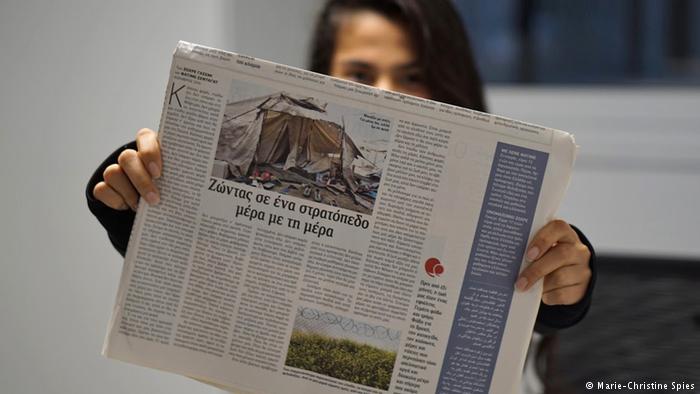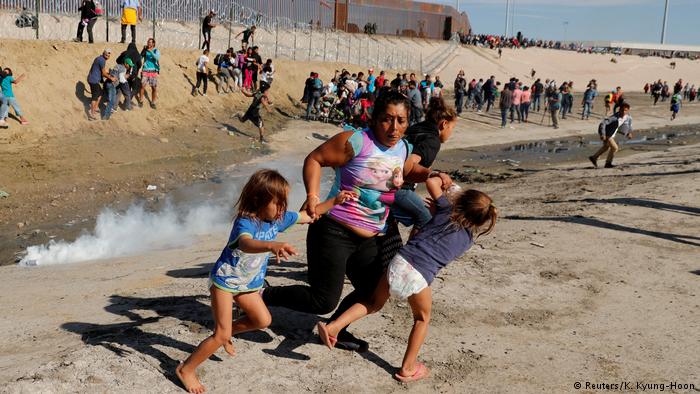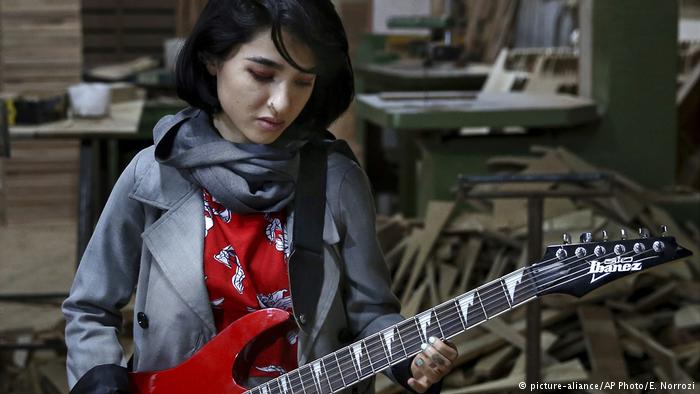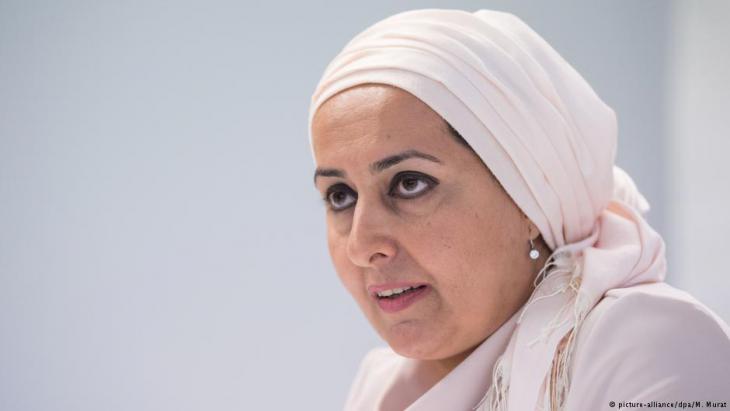Newspaper in five languages gives refugees a voice

Fifteen Afghan girls founded the “Migratory Birds” — a newspaper made by refugees for refugees. For the young authors, reporting about their own lives is an act of self-empowerment.
Ever since birth, Mahdia Hosseini has been reminded of her “worthlessness.” She was born to an Afghan refugee family living in Iran, where she faced a “permanent psychological and intellectual battle,” as she describes it. Classmates bullied her, officials discriminated against her, merchants did not even want to sell her a cheap SIM card.
And because she is a woman, she also suffered In her own community. “An Afghan woman has a lot to say but has not learned to speak,” she would later write in an article. “Only men are allowed to shout, hit and be impatient.”
Mahdia wrote these words in Migratory Birds, a multilingual newspaper made by refugees, for refuges — and Mahdia is the paper’s editor-in-chief. “Don’t you think it’s time to break down all those barriers that have restricted my life?” she asks in an article. Her own newspaper is the proof that she is doing just that.

Mahdia Hosseini (28), editor-in-chief of the Migratory Birds newspaper, writes about her life as an Afghan woman
The voice of refugees
Flashback to 2016: Large refugee movements into Europe were underway, and the residents of Schisto refugee camp in Athens got used to the international journalists who frequently come to the camp looking for stories. They were not welcome.
“No one wanted to speak with them,” recalls Mahdia Hosseini, who lived in the camp after migrating from Iran to Europe. “The inhabitants didn’t believe that any interview they gave would ever reach the people it should,” she says. “So we decided to become reporters ourselves and be the voice of the refugees.”
Fourteen other Afghan girls, mostly minors, liked Mahdia’s idea of writing about their own past, life in the camp and future goals. Their vision was to establish their own newspaper. However, men and boys in the camp didn’t particularly like the idea of having young female refugees be the ones to ask them questions rather than international journalists. “They did not believe in us and said that women cannot be journalists,” Mahdia remembers.

Greek journalist Denisa Bajraktari (28) helps young reporters with their research
Boys joined the team
But the young women would not be discouraged. They continued to develop their ideas and hold editorial meetings. Eventually, the Network for Children’s Rights, a Greek NGO, caught wind of their ambitious idea and reached out to funding groups such as the UN Refugee Agency (UNHCR) and the European Union, turning the young women’s vision into reality.
The first issue of Migratory Birds was printed in April 2017 with articles in Farsi, Greek and English. Today, 13,000 copies per issue are distributed in camps and social organizations all over Greece. Like previous issues, the 11th issue has been published and together with the Greek newspaper Efimerida ton Sintakton.

Mo Alrifai (18) likes to write brief profiles of popular personalities such as Nelson Mandela or Charlie Chaplin
Migratory Birds now includes content in five languages, including Arabic and Urdu, but the articles are translated into English for online. “Because we suffer, we are trying to speak a lot about what is happening to us, to show everyone how we are treated and how they can help us,” says 18-year old Syrian author Mo Alrifai.
And have boys joined the team? “At first it was only girl power, but now boys and girls work together in perfect equality,” says Albanian-Greek journalist Denisa Bajraktari, 28, whose job it is to supervise the newspaper project. “What is also great for integration is what they learn about democratic rights,” she adds. “Most young authors come from countries without freedom of expression. Now they have this freedom — and know how to use it.”
Locals contribute as well
At first, the newspaper was not intended to be multilingual, Bajraktari explains. “That came along the way. So many people with different languages just wanted to be a part of it, because everybody can contribute in different ways.” If somebody does not want to write, or cannot because of illiteracy, he or she can take photos. Online radio also arose out of the project. “Or somebody might just contribute to our editorial meetings,” Bajraktari says. Greeks participate in the project as well, making it a platform for exchange between refugees and locals.

Everyday life in the refugee camp
The authors come and go, move on in Europe or return. The newspaper was named after the shared hope of all contributors that “one day they would fly in the direction of happiness and joy.” For editor-in-chief Mahdia Hosseini, that place could be Germany. “My father and sisters are living there,” she says, promising that if she gets there, the “Migratory Bird” will build its nest there too.
Author: Gordon Wüllner






